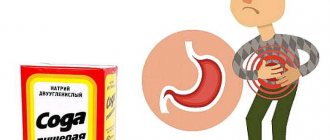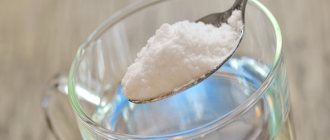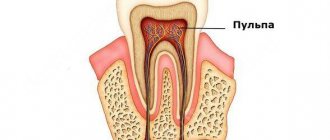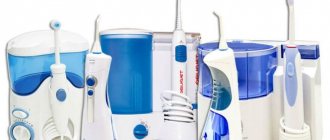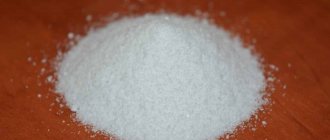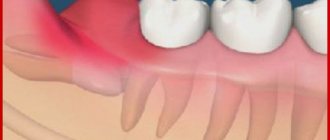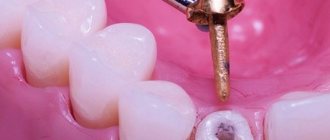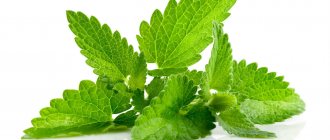To keep your teeth healthy and beautiful, you must follow the rules of hygiene. You should be extremely careful when choosing toothpaste.
Unfortunately, you cannot be sure that the entire list of beneficial additives indicated in the composition is actually present in the paste. But you can make healthy pasta yourself from available products. Let's take a closer look at how to make healthy toothpaste at home.
The main advantages of natural pastes
Each purchased paste is made using chemical components. Such substances can damage tooth enamel and cause irritation of the mucous membrane.
During hygiene procedures, a small amount of paste enters the esophagus. With regular exposure, the chemical components of the product can cause disturbances in the functioning of the digestive system.
The following components pose a health hazard:
- lauryl sulfate;
- parabens;
- triclosan.
Fluoride is an essential element in toothpastes with a whitening effect. Despite its widespread use, this component is also not entirely beneficial for the human body. Homemade pastes will protect you from the negative effects of such chemical components. In addition, home remedies do not cause irritation and their effects are milder.
It's worth noting that most store-bought toothpastes are not recommended for everyday use, especially those that have whitening properties. This warning does not apply to hygiene products made independently from natural ingredients.
The natural hygiene product is absolutely safe if you follow the recommendations on how to properly make toothpaste with your own hands, you can also use the instructions with photos.
The homemade paste contains essential oil, which effectively strengthens tooth enamel and also promotes gum healing. Such oils are powerful antiseptics that are gentle on tissues.
Why you should avoid industrial compounds
Most often, industrial oral care products contain many ingredients that are hazardous to human health. Among them:
- Glycerol. It envelops each tooth, thereby preventing the enamel from repairing itself.
- Sodium lauryl sulfate. This chemical compound, which causes the formation of foam, provokes irritant skin reactions and adversely affects all organs.
- Triclosan. There is information about its connection with disorders of the nervous system, as well as with the development of cancer.
- Fluorine. This component tends to accumulate in the human body and is toxic in large quantities. Therefore, you should not take responsibility when choosing a fluoride-containing cleaning product when purchasing; if necessary, it should be prescribed exclusively by your dentist. In addition, many food products already contain sufficient amounts of this substance.
Then you ask, what to replace toothpaste with? Nothing. Just try to make a natural one yourself. And just a month after using it, your smile will acquire a unique whiteness and shine.
Selecting the ingredients correctly
In folk medicine, there are many options for preparing homemade mixtures for cleaning teeth. To choose the right prescription for you, assess the condition of your oral cavity and identify problems that need to be eliminated. After that, choose what you need to make toothpaste.
Pastes containing cloves have an analgesic effect. This plant not only treats toothache, but also prevents its recurrence. Therefore, it is appropriate to use cloves also as a prophylactic agent. To normalize blood circulation in the gums, it is recommended to add rosemary extract.
Note!
- Toothpicks - benefits, harm and tips for choosing safe toothpicks from the best materials
Tartar cleaning - effective technologies and methods of professional cleaning. Indications and contraindications for tartar removal
- Sour taste in the mouth - causes and symptoms of what disease can a sour taste in the mouth be?
Thyme can help eliminate harmful bacteria. Fresh mint leaves stop inflammatory processes and give freshness to your breath. Tea tree has many beneficial properties. It is effective in the treatment of caries, and also combats increased sensitivity of the gums.
The world is on alert
At the end of the second year of the pandemic, experts are increasingly talking about new threats. Despite all the troubles that the new coronavirus has brought to the world, it, unfortunately, is not the first and certainly not the last. Rapid climate change caused by anthropogenic activities has put humanity on alert.
The record amount of carbon dioxide that has accumulated in the earth's atmosphere will contribute to a global increase in temperatures. Together with heat and drought in some regions and floods and landslides in others, we will face not only mass climate migrations, but also new, previously unknown diseases.
By increasingly invading the habitat of wild animals, we risk opening Pandora's box. Of course, the threat from viruses discovered as a result of thawing permafrost has not been canceled, but zoonoses - zoonotic infections that are transmitted from animals to humans - pose the greatest danger today. Ultimately, this is how COVID-19 emerged—through natural evolutionary processes.
Viruses use some animals as "intermediate" hosts
In fact, all of the above is not news, especially for specialists in the field of global health. So, back in 1947, the World Health Organization (WHO) began tracking viruses with pandemic potential. The researchers used standardized symptom checklists to identify threats by using standardized symptom checklists to look for signals of emerging or re-emerging disease among groups of patients with symptoms that are not easily diagnosed.
There's just one problem: if the patient is admitted to the hospital, the outbreak has already occurred. This is what happened with the coronavirus SARS-CoV-2, which causes COVID-19: the infection was likely already widespread, long before it was first detected. It turns out that the developed strategy failed us.
Paste for sensitive teeth
A paste recipe based on white clay and honey is recommended for those with sensitive teeth and gums. This product will carefully remove plaque and tartar and give freshness to your breath. In addition, the paste effectively whitens tooth enamel. Let's look at the instructions on how to make toothpaste.
To prepare the product, take white cosmetic clay (80 g), honey (15 g), two drops each of chamomile and sage essential oil.
Initially, make a mixture of viscous consistency from clay and water, into which add honey and oils alternately. Mix the ingredients until smooth.
Photo instructions on how to make toothpaste
Help the project, share your review
Join the discussion of the article:
Site search
Recommendations
Unusual crafts for children - ideas, tips, photo examples
Sangviritrin - instructions for use of the solution and indications for use for dental problems
Mouth spray: the best formulations with prebiotics, their cost and application features
Falimint - reviews, instructions for use and expert assessment of effectiveness
Stomatofit - complete instructions for use, dosage, selection of analogues and price comparison
Ketorol for toothache - reviews of use and effectiveness. Cost and dentists’ opinions about the medicine
Antibiotics for flux: the most effective remedies and tips on choosing medications for children and adults
Metrogil denta - analogues, advantages of use, composition features and indications for use
Bathroom vanity unit – choose the best option. Photo of design, combination, sizes, color
Periodontocide - means for prevention, release form, methods of application and indications for use
Medicine for teeth - rating of the best remedies for eliminating pain and relieving swelling. Doctors' advice and cost of the most effective drugs
Medicine for gums - the most effective gels, ointments and tablets for relieving pain and discomfort
Curtains made of beads - what is their feature? Photo of beautiful design + installation instructions
Blue for stomatitis - methods and features of using the medicine for children and adults
Cholisal is a dental gel for gums and oral cavity. Price and instructions for use
Kamistad gel - instructions for use, features of use, composition, indications and contraindications
Lincomycin - instructions for use, cost, reviews from patients and doctors
Ointment for gums - the choice of the most effective healing and anti-inflammatory agents
Ibuprofen - clinical practice, instructions for use and safety tips
Pain after wisdom tooth removal - possible complications and duration of pain after removal
Sections
Most read on the site:
A tooth hurts at night The sky in the mouth hurts Vitamins for teeth Inflammation of the gums Inflammation of the tooth Gel for gums Herpes in the mouth Dental hygiene Gorpils Dekasan Dental floss Tartar Plaque Ibuprofen Irrigator How to choose a mouthwash How to brush your teeth Kamistad gel Bleeding gums Medicine for gums Medicine for teeth Cavity treatment mouth Lincomcin ointment for gum metrogil denta nystatin swollen upper lip whitening paste gums gums periodontocide Prevention Pomic in the mouth Solution to the oral cavity of Sinki sinky from stomatitis spray spray stomatophytite dentistry in the gums, ultrasound halitosis Hepilor Holisal Crunches the jaw Itchy teeth Cleaning gums Splinting teeth Mouth ulcers
Copyright © 2022 ZubkiExpert.Ru is a leading online portal about dentistry. Modern methods of diagnostics and dental treatment! Home | Sitemap | Dentist consultation

